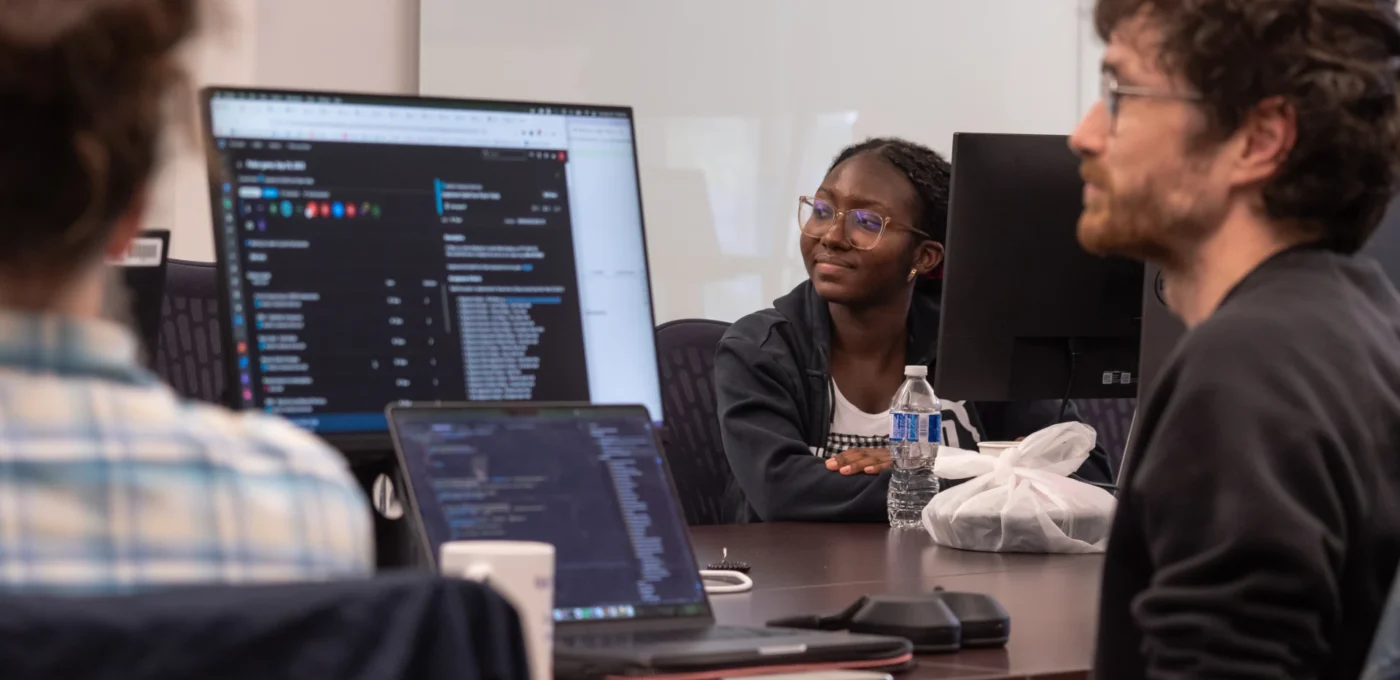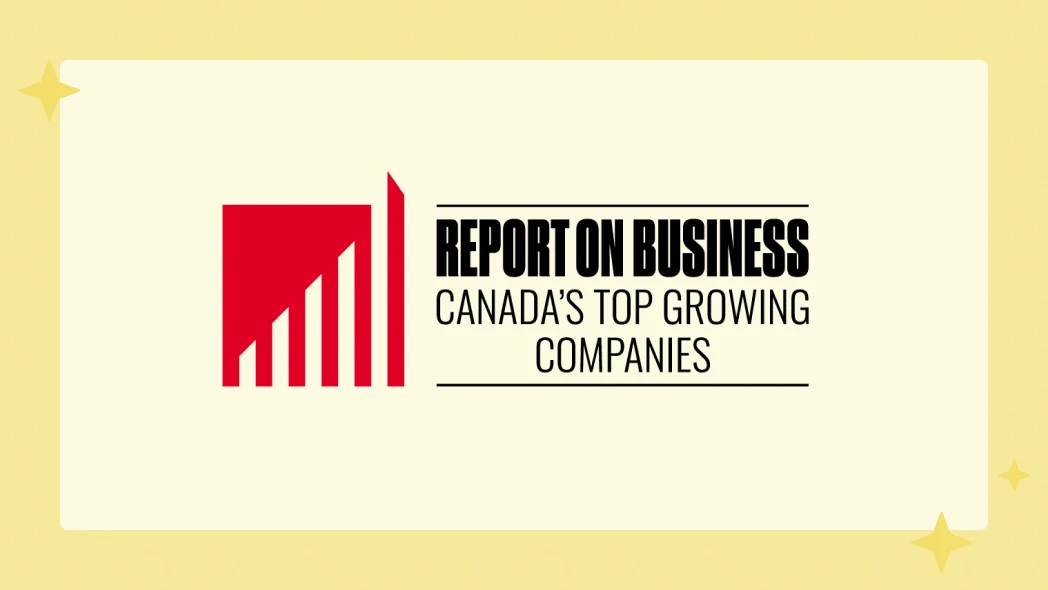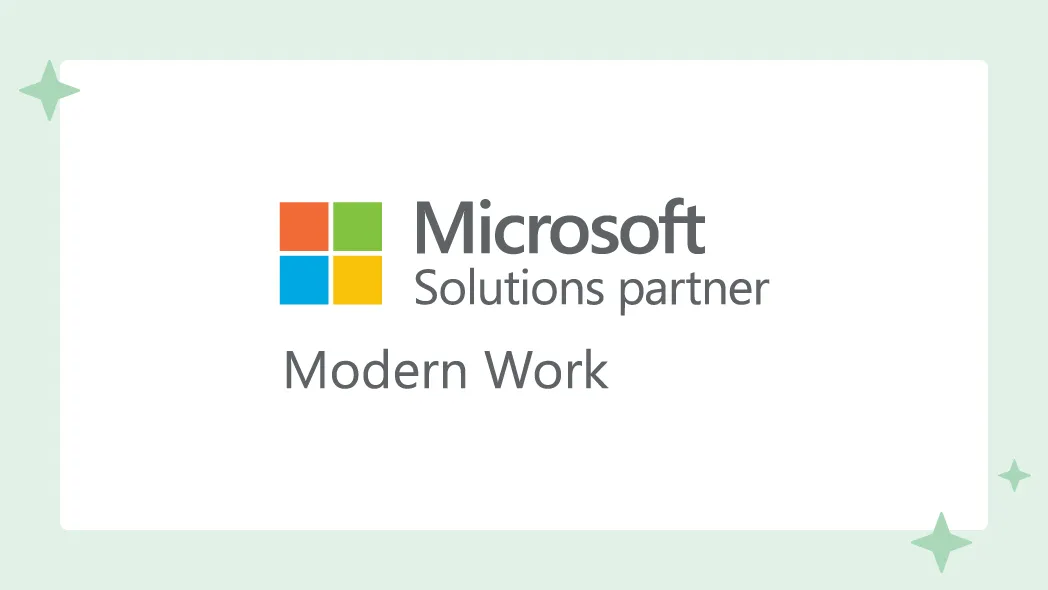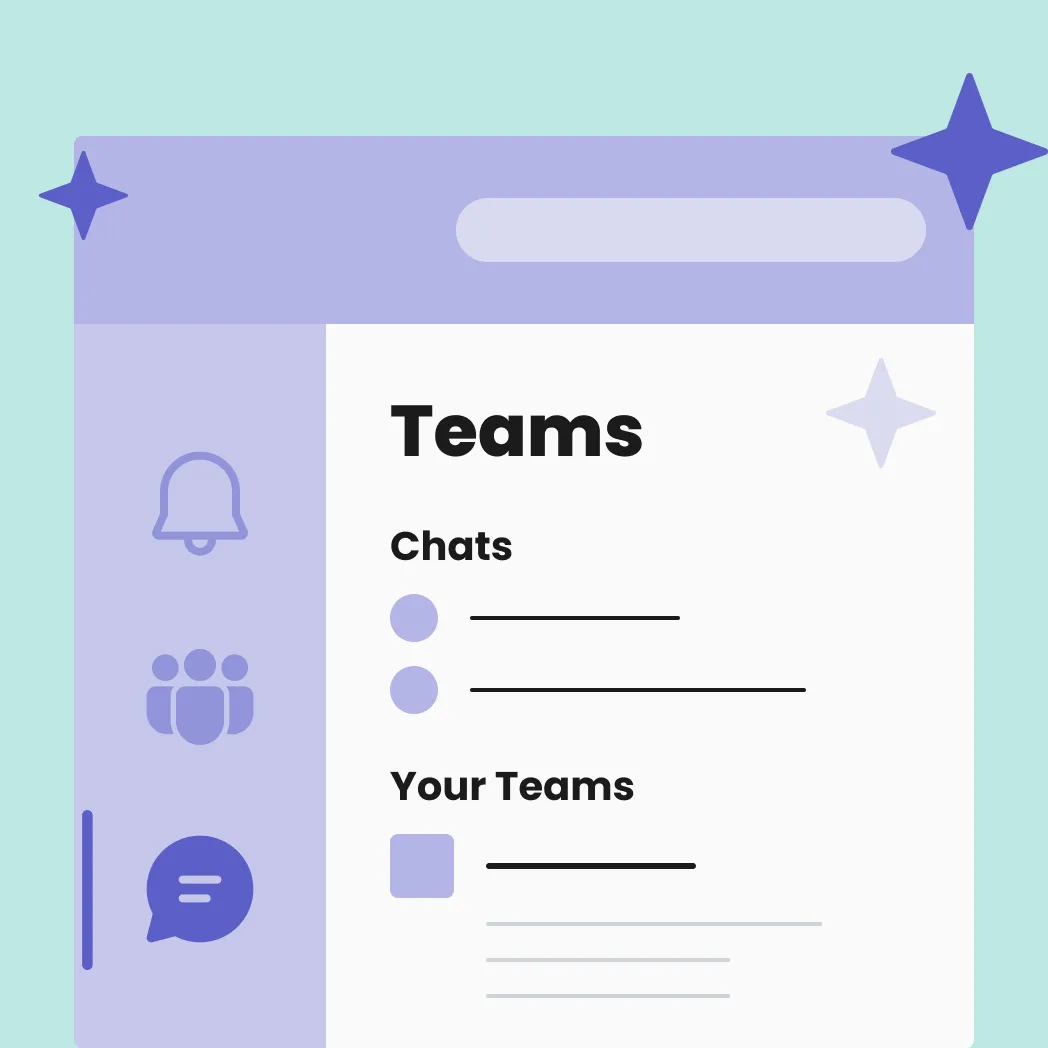4 Reasons Why In-Person Team Building is Vital for Remote Success
QUICK SUMMARY
Product Manager Ernesto Altahona reflects on the importance of in-person team building and collaboration on long-term success for a remote company after his first experience at Punchcard Connects


In today’s remote-first world where Microsoft Teams messages have replaced water-cooler conversations, it’s easy to think that face-to-face interactions are a thing of the past. But at Punchcard, we’ve discovered something crucial—in-person team building isn’t just a nice-to-have, it’s a must-have ingredient that is essential for long-term success working in remote environments.
Now don’t get me wrong. Working at a remote-first company is incredible an experience with a myriad of perks. You can work from virtually anywhere in the world, avoid daily bumper-to-bumper commutes, and get to enjoy more precious time with your family and loved ones. For someone like me who comes from Colombia where remote work is incredibly hard to find, landing a role at a remote-first company like Punchcard is truly a dream come true.
But as much as we love to reap the benefits of remote work, there’s one element that sometimes gets lost in hustle and bustle of a remote-only work environment: human connection.
That’s why each year our team gathers in Edmonton for an event that has become a cornerstone of our company culture: Punchcard Connects. This week-long event is packed with everything from innovation-driven hack days to inspirational speaker series to everything in-between. But more importantly, it’s where we reinforce the very relationships that fuel our remote collaboration throughout the rest of the year.
Let’s dive into the four key reasons why in-person team building is a game-changer for remote teams and how Punchcard Connects is the perfect example of how to do it right!
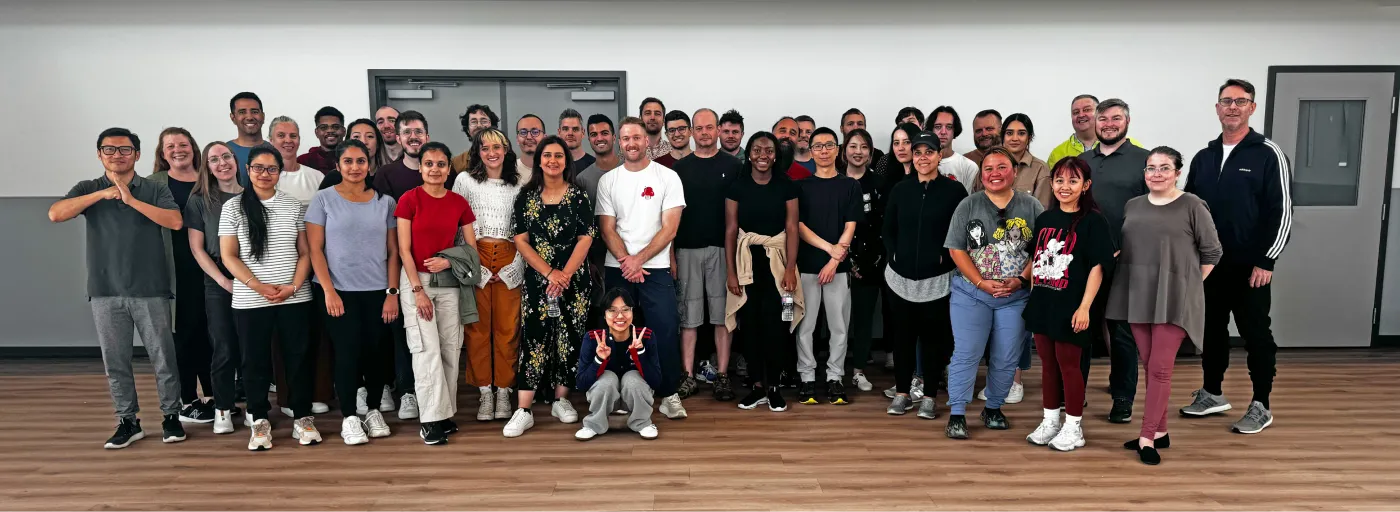
01
Building Personal Connections Enhances Collaboration Beyond the Usual Suspects
When you spend most of your workday interacting through screens, it’s easy to forget that your colleagues are more than just faces in a Teams window. They’re real people with stories, quirks, personalities, strengths, and weaknesses. In-person events give us the opportunity to connect on a deeper level, fostering trust and camaraderie—which leads to stronger, more effective collaboration when we finally return to our respective remote work environments.
Depending on your role within a company, you may only typically interact with the same few immediate teammates on a day-to-day basis. But what about the rest of your colleagues? In-person collaboration opens the door to building cross-functional relationships with team members from different departments across the company.
At Punchcard Connects, I had the opportunity to meet a majority of my colleagues for the very first time in-person. Suddenly, I wasn’t just sending a Microsoft Teams message to someone in Finance or Marketing. I was actually connecting with Mark, James, Ania, and Douglas—real people with real backgrounds and stories, just like mine. You can laugh together, share experiences, and bond in a way that doesn’t always translate through a screen.
And trust me, when you nurture these relationships, it changes the way you work. You stop thinking in silos. You understand how your role connects to other parts of the company and you feel part of something bigger. A team. A family. And that’s why in-person moments are so powerful—they break down those invisible barriers and help bring us closer together than ever before.
02
Face-to-Face Socialization Strengthens Team Cohesion
One of the greatest challenges for remote teams is creating a genuine sense of unity and belonging. While we may share projects and goals from afar, it’s the informal moments—the laughter, the jokes, and the shared experiences —that truly strengthen team cohesion.
In a remote work setting, a majority of our conversations are straight and to the point. You hop on a Teams call, discuss the issue, resolve the blocker, and finish the meeting. That’s it.
But when you meet in person, suddenly you’re sharing your new hobbies or bonding over similar tastes in music or TV shows. It’s a more relaxed and organic environment that helps you forge connection that runs deeper than just simply work. Ultimately, it changes your relationship with your colleagues from co-workers to friends.
03
In-Person Team Building Helps Us Thrive
While our company works extremely well together in a remote environment (due in part to the well-designed processes we have in place), the truth is that in-person team building is the secret sauce that helps us collectively thrive. When we spend time face-to-face, we get to know the individuals behind the Teams messages. That fundamental personal understanding helps deepen trust, and trust is everything when it comes to collaboration.
In-person team building strengthens the bonds that help us thrive in a remote setting. It’s like recharging your batteries. You come back to the virtual world energized, motivated, and with a stronger sense of connection to your teammates. And when challenges come along—like they always do—it is that in-person connection that helps you face challenges with the utmost confidence and understanding of your team.
For example, Hack Days have become an annual tradition as part of Punchcard Connects every year. Teams gather together to tackle creative challenges, share ideas, and work on new projects. At the end of the day, each team presents their project and, more importantly, the process in which they worked together as a team to solve their main objective. It was abundantly clear that the energy of in-person collaboration at this year’s Hack Day had fuelled our creative spark and taken our work to new heights. In-person collaboration fuels innovation, making it easier to brainstorm, iterate, and problem-solve more effectively than through virtual channels.
04
In-Person Learning Fosters Professional Growth
While remote work offers flexibility, it can sometimes limit opportunities for professional development. Virtual workshops are great but there’s nothing quite like being in the same room interacting with a presenter and engaging in real-time discussions. In-person learning leads to deeper engagement and immediate feedback—making it more impactful than its digital counterpart.
This year, we had the pleasure of attending a series of workshops from High Performance Fitness Coach Simon Bennett on breathing techniques to reduce stress; Neurodiversity Coach Tara Langan on creating more comfortable workplaces for all neurotypes; and Speaker and Business Strategist Amanda Wagner on innovative sales and service strategies. The in-person setting allowed for interactive participation and engaging discussions that went beyond just the typical surface level.
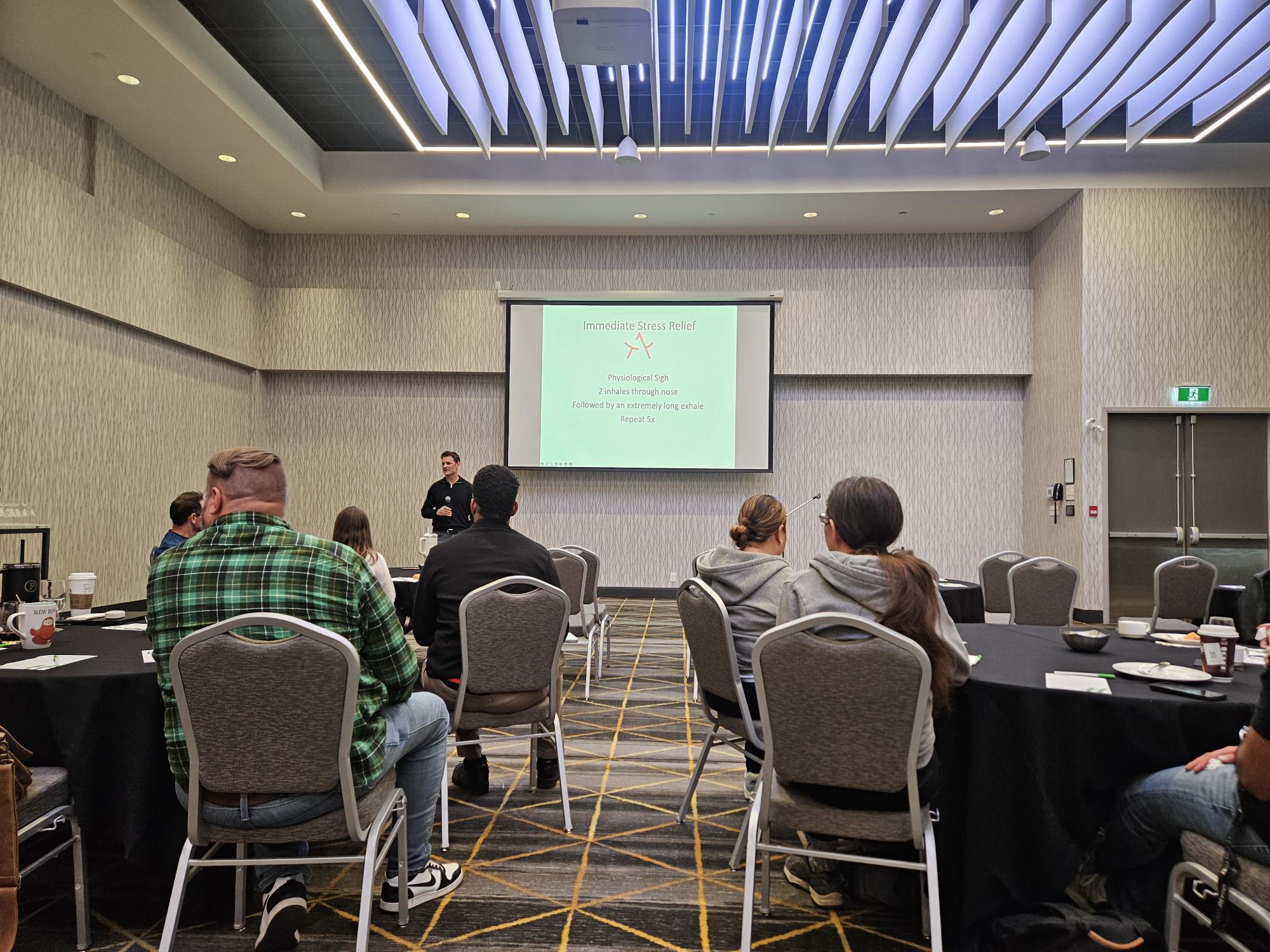


These workshops weren’t just theoretical; they were practical and applicable to our day-to-day work. We left each session not only with new knowledge but with a renewed sense of purpose. The face-to-face interaction made these sessions more dynamic and we carried these insights forward into our professional lives.
In-Person Team Building Is the Secret to Remote Success
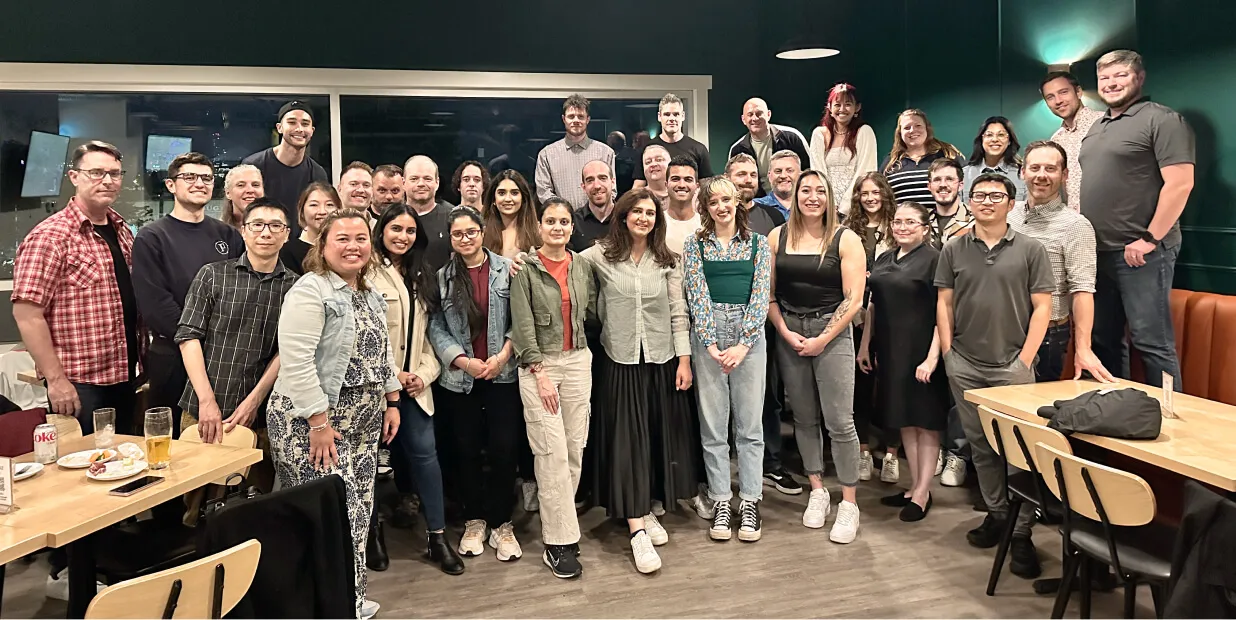
While it has been proven that remote employees are in fact more productive than their hybrid or fully in-office counterparts, you can’t ignore the magic that happens when companies collectively gather together face-to-face.
Punchcard Connects wasn’t just a fun week away from our home offices—it was a powerful reminder of why in-person team building is critical for long-term remote success. It’s through these shared experiences that we build personal connections, strengthen team cohesion, fuel innovation, and foster professional growth.
As we return to our remote work environments in respective cities across Canada, the bonds we’ve built and the lessons we’ve learned at Punchcard Connects will continue to drive us throughout the year. In-person team building isn’t a luxury—it’s a necessity for thriving in a remote-first world. At the end of the day, we’re all just human, and nothing beats real human connection—even in a digital world.



You Might Also Like
Featured Posts

6 Dimensions of a High-Performing Digital Enterprise (Part 2 of 2)
Read more: 6 Dimensions of a High-Performing Digital Enterprise (Part 2 of 2)
How Digital Enterprises Are Shaping the Future of High-Performance Organizations (Part 1 of 2)
Read more: How Digital Enterprises Are Shaping the Future of High-Performance Organizations (Part 1 of 2)
